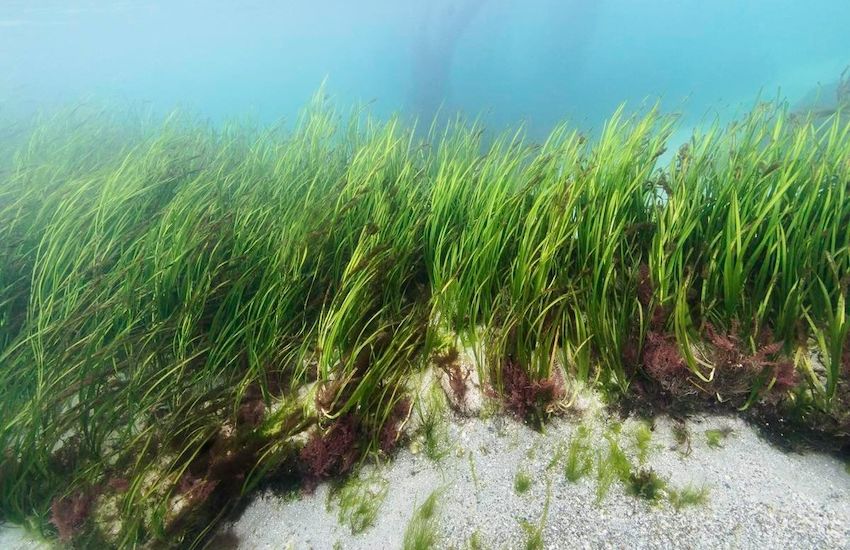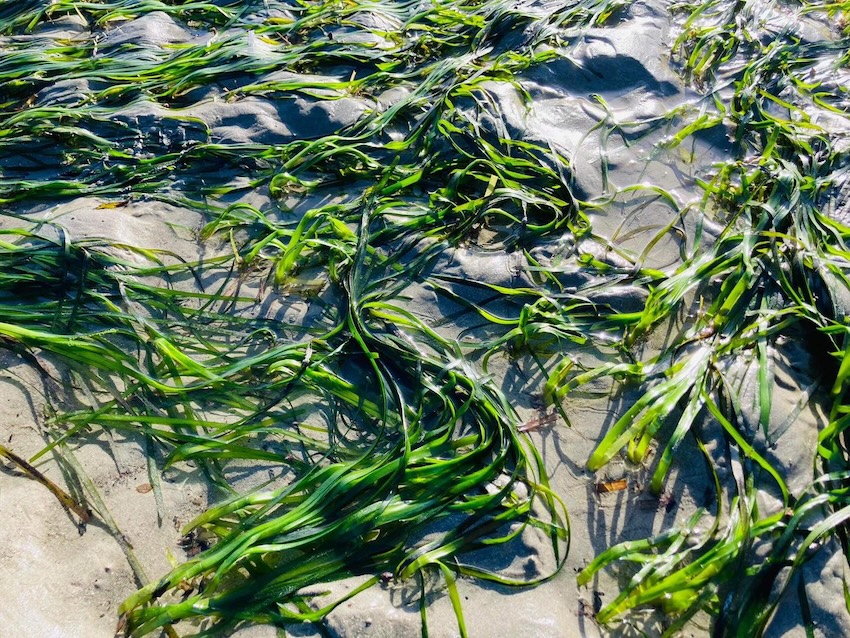


The Bailiwick Eelgrass Exploration Project aims to encourage islanders to get involved with citizen science, and an invaluable carbon sink.
The group received funding from the Co-Op’s Community Fund, meaning they can explore just how much carbon the Bailiwick’s eelgrass contains.
Eelgrass is common in the Bailiwick, in fact we have two separate species. It’s a flowering, land based plant that’s adapted itself to thrive in Marine conditions, what makes it remarkable though is its ability to capture and contain carbon from our environment.
Dr Mel Broadhurst-Allen is the Living Seas Coordinator, for the Alderney Wildlife Trust. Alongside La Societe, they’re helping organise the effort to understand our eelgrass.
“Essentially it is considered a 'nature based solution to climate change' - it is locking away carbon from the atmosphere, which may contribute to the climate emergency. If we care about this marine habitat appropriately, it may help reduce the impacts of climate change.
“Currently we have limited quantitative information on how much organic carbon is stored within our own eelgrass beds, across the Bailiwick. A local student with the University of Plymouth enabled the first study of organic carbon of Guernsey's eelgrass beds earlier this year.
"We wish to build upon this study and expand across Guernsey, Herm and Alderney.”

Pictured: Eelgrass like the sample above at Salarie, could be an invaluable tool in the fight against climate change. Photo Credit: BEEP.
It’s not the first time that we have heard about the potential impact of citizen science, with a “lack of local data” providing some serious food for thought in the State of Nature Report 2024.
Dr Broadhurst-Allen added: “BEEP is a volunteer led citizen science project with limited resources. We are indebted to CO-OP for giving us the opportunity to take this assessment forward.
“It will not only advance our knowledge of the Bailiwick's eelgrass beds but also provide a new platform on how to engage with the community, in terms of eelgrass bed importance and the link with climate change.
“We will be sampling over the autumn, with the laboratory works scheduled for the winter. We hope to receive the results in spring 2025 and will be publishing the results in due course.”
You can find out more about the Bailiwick’s eelgrass and the initiatives to understand it better on La Societe’s website.
Comments
Comments on this story express the views of the commentator only, not Bailiwick Publishing. We are unable to guarantee the accuracy of any of those comments.